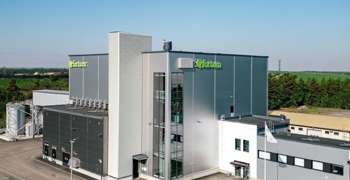 Fortum Battery Recycling has entered into a preliminary agreement and signed a memorandum of understanding with Marubeni Corporation to jointly build a sustainable lithium-ion battery recycling chain, focusing on graphite recycling.
Fortum Battery Recycling has entered into a preliminary agreement and signed a memorandum of understanding with Marubeni Corporation to jointly build a sustainable lithium-ion battery recycling chain, focusing on graphite recycling.
Marubeni will support Fortum in supplying in-process waste materials and process chemicals, and also seek for the possibility of graphite and lithium recycling technologies, in order to develop a recycling value chain to meet the market demand. Both companies will continue to explore other potential business opportunities and promote sustainable growth in the clean energy field.
“We are very excited to be cooperating with Marubeni to explore potential business opportunities within graphite recycling. An average electric vehicle (EV) car battery contains about 52kg of graphite, and it is the main raw material of an EV battery. At the same time, 40% of raw natural graphite is imported from China and technologies for graphite recycling do not exist on a commercial scale yet. Fortum Battery Recycling aims to change this, as we are working on our own graphite recycling technology,“ says Fortum’s Tero Holländer, Head for Battery business line, Fortum Battery Recycling.
Fortum is producing recycled graphite from EV battery waste. Graphite is suitable for use in several industrial applications and further developed for EV battery anodes. Marubeni has a green strategy in its mid-term business strategy “GC 2024” announced in February 2022.
Through this partnership, Fortum, together with Marubeni, will play a key role in the European market for recycled lithium-ion battery materials, it adds.
Fortum Battery Recycling offers recycling services for lithium-ion batteries and battery production waste and recovers valuable battery metals to produce sustainable recycled raw materials for reuse. It has Europe’s largest closed-loop hydrometallurgical battery recycling facility in Harjavalta, Finland.
